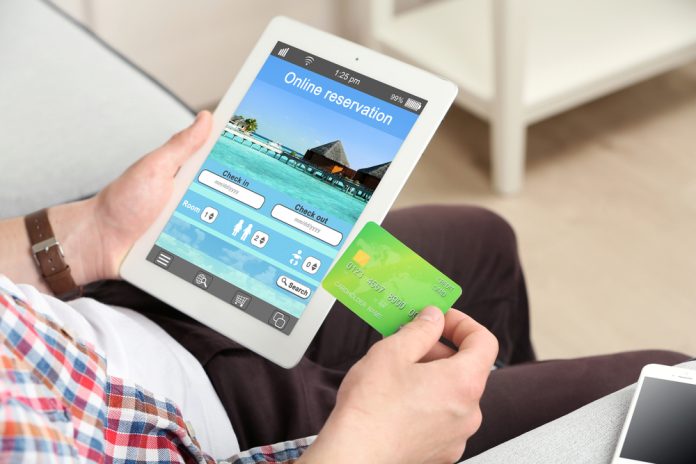While the internet has become a game-changer in how people communicate and do business, it might well be argued that mobile has done even more to alter the manner by which people carry out transactions.
Although the web offered access to the information superhighway, without the development of smartphones and tablets it would still have been limited to the times when someone could sit down with a PC and log on. Instead, access to the net exists anytime and anywhere that a signal can be obtained, and alongside that a range of other apps that mean consumers can buy goods and services 24/7/365.
This has impacted on the hospitality sector just as it has elsewhere, with such developments meaning the ability of hotels to offer mobile booking services – including mobile-friendly internet – is a key determinant of success. The more they can offer this and supporting apps, the more they will entice guests who want to use their smartphones to make bookings, just as they will use such devices for other transactions.
However, there are ways in which hotels can refine their services to maximise their potential to turn mobile access into bookings.R omain Roulleau, senior vice president of e-commerce at AccorHotels, listed a number of tips at the recent Travel Distribution Summit Europe 2015, Hotel News Now reported. The panel noted that trust is now a key issue when creating apps that can be used to make bookings. Ultan O’Brien, vice president of sales at travel analytics company Boxever, remarked: “The new engagement is about trust. The major change has been from going from a travel agency you trusted and had a phone number for to an app that travels with you.” And trust does not derive from the product itself but from the info that comes with it. The sale must not be forced. The upsell must be at and only at the back end.”The panel also noted that building up trust can be helped by ensuring apps come with promotions and discounts, just as agents would. This can be a key element in ensuring the customer uses their apps to get a good deal instead of using more traditional purchasing methods. A second view on which the panel agreed was that people do not actually like being marketed to. Of course, traditional agencies do exactly that with their glossy brochures and posters, but mobile offers new opportunities. For example, the data that can be built up through people’s use of apps can help identify offers that may be of more interest to them.
Summarising this philosophy, Mr O’Brien remarked: “In 1999, Jeff Bezos at Amazon said there should be an individual website for every customer. You know what he means when looking at this current millennial generation.”With tailored offers and content as king, this is a different approach that hotels evidently need to adjust to. To get it right, however, requires consistency – and that means nobody can afford to have their operations run by a bunch of autonomous silos. Chief technology officer at rail-booking online travel agency The Trainline Mark Holt said his company has had to get everyone involved in understanding what turns potential customers into actual ones.
The panelists agreed that the more people who see the message, it naturally follows that the number of conversions is likely to increase, and in turn that can make apps an ever more important tool for hoteliers. Among the ways the potential can be realised is through having a wider range of languages.
Mr Roulleau noted AccorHotels is doing just that. He revealed: “We’re adding Arabic, Thai and Swedish this year to our already extensive list of languages on our distribution channels, and newspapers in different languages will be added to the app.” To really make the most of the possibilities, however, Mr Roulleau said keeping on top of trends is vital. Using key performance indicators can help track action by potential guests and establish where the best – and worst – results are coming from. As trends and tastes change, this is something hotels need to be ready to respond to.
He explained: “Accor sales are currently 70 per cent desktop, 30 per cent mobile, which includes smartphone and tablet, but we’ve seen a 60 per cent rise in mobile use between Quarter One 2014 and the same time period this year, which equates to one new mobile user every second. Of course this is wonderful, but we know we have to be on our toes.” Finally, the panel agreed that things should be kept simple. There should not be too many apps as this makes it harder to keep track. Nor will too much complication make it easy to understand customers; quite the reverse, in fact.So, while hotels need to be in tune with what customers want and respond accordingly, they also need to be flexible and ready to change when required. By keeping things simple, such a task will be much easier.







